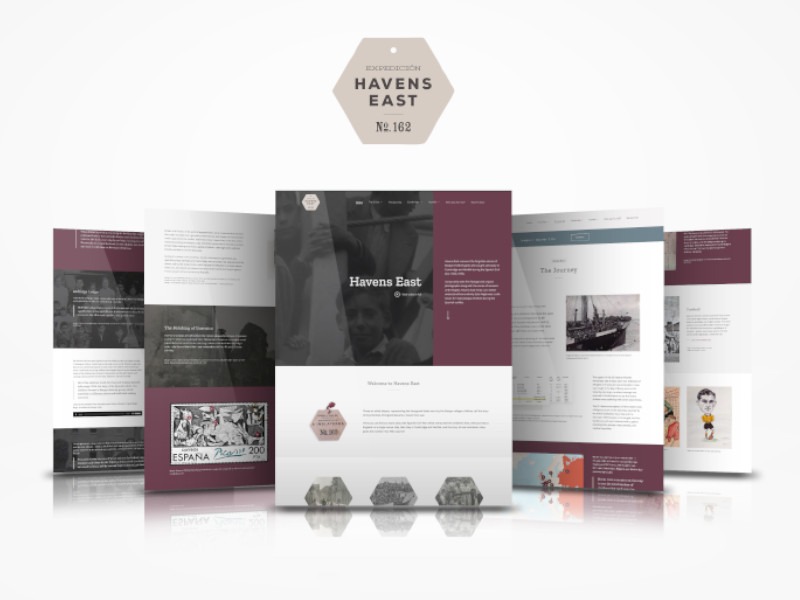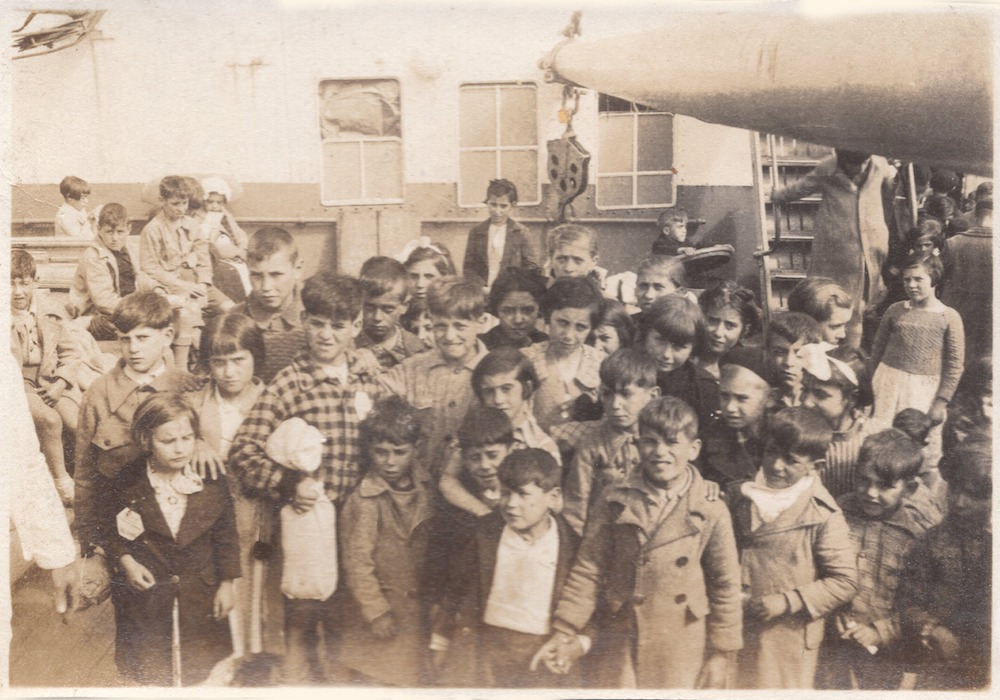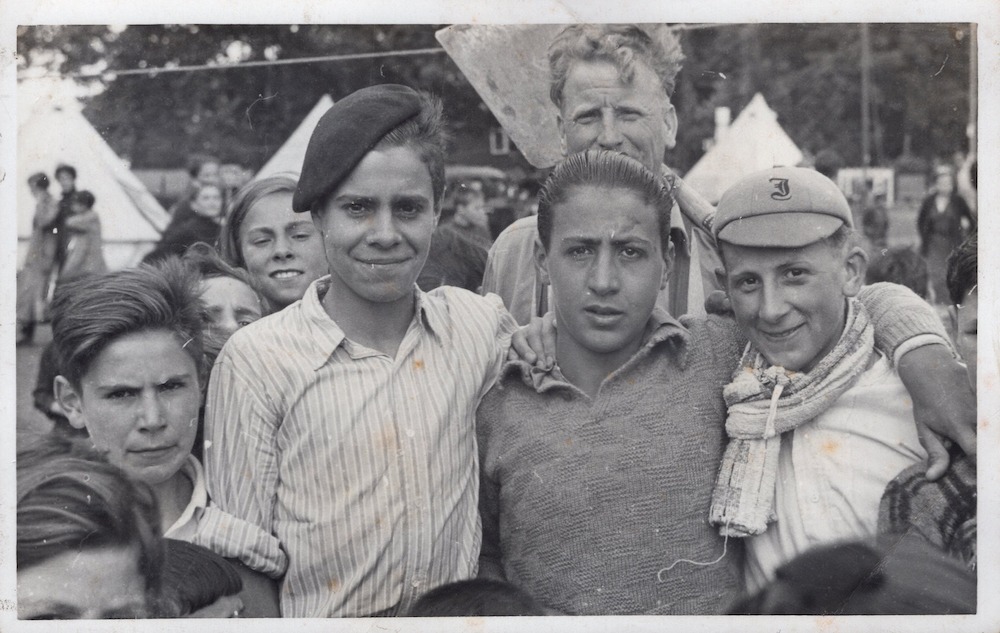Telling the stories of the child refugees and those who helped them escape the Spanish Civil War
Access the Online Storybook here.
About
New Routes, Old Roots at Anglia Ruskin University (ARU) is an arts-based research network focusing on contemporary and historical experiences of exile and migration. In 2020, they received a National Lottery Heritage Fund grant to investigate the lost histories of child refugees who sought sanctuary in East Anglia during the Spanish Civil War in 1936-39. Working with a number of partners, experts and community researchers ‘Havens East’ tells these stories in an online exhibition.
The Norfolk part of the story focuses on the Oakley Park and Rollesby colonies which were established in August-November 1937 as havens for 50 young male Basque exiles. We learn about the remarkable English volunteer Poppy Vulliamy and how she set up a democratic ‘parliament’ for the boys. The Basque boys made friends with local lads, played highly competitive football matches against them and got to know about English food such as bully beef. We see why the youngsters were given the ‘freedom of the Pleasure Beach’ and how they won their way into the hearts of local people.
The Cambridge part of the story pays tribute to the local volunteers, now largely forgotten, who worked tirelessly to support the Basque children. One was Professor Cornford whose son had been killed fighting in the Spanish Civil War and who took the entire colony to his windmill near the sea so the children, traumatised by war, could enjoy a two-week holiday. The 29 children were cared for in two buildings converted by the local voluntary committee into comfortable hostels. The first was in a disused vicarage in the village of Pampisford and the second in a large house, Salisbury Villas on Station Road Cambridge owned by Jesus College, Cambridge. We see how they had to leave Pampisford because the children were too noisy! We also catch a glimpse of a rare film made in Cambridge about their daily life – and that holiday by the sea.
Alongside their stories, the exhibition focuses on the lives of some of the children who remained in the region after the war ended, including Maria Luisa Alvarez (now Toole) who came with her little brother. Escaping from the fighting, they reached the port of Bilbao but only after the family donkey had died on the way meaning they had to leave Spain with few possessions. We also learn of the Gallego brothers, Joe and Tony, who later played professional football for Cambridge United, Cambridge Town and Norwich City.
This exhibition will reveal so much that has been forgotten – just who had the label No. 162 and why did he hunt for his favourite book? Why did the Basque boys call their dog ‘Reddy’?
Taken together, these stories help us to better understand how and why East Anglia was a safe haven for many Basque children during the Spanish conflict. Dr. Edward Packard, one of the project research leads and trustee of BCA’37: The Association for the UK Basque Children, said: “I know there’ll be a very appreciative audience from supporters of the BCA’37 UK, and it will also attract a lot of new interest in this important history.”
Dr Baxter said: “We are thrilled to have received this support thanks to [players of] the National Lottery. The heritage stories we want to preserve are severely at risk because of the advanced age of the Basque children and members of the local communities that served them, all of whole will now be in their 90s.”
Originally planned as a touring exhibition, supported by Keystage Arts and Heritage, as a response to the current situation, the project has pivoted to provide an accessible and immersive online exhibition designed by Little Designs Cambridge. The exhibition also includes activities throughout for school-aged children to help immerse exhibition visitors in the stories and to understand the issues covered.
Working with Jake Rose-Brown at Schools of Sanctuary, the project has produced learning and teaching materials to support their Day of Welcome – a day of action to raise awareness of issues of migration and sanctuary-seeking experience, past and present.
The project had also hoped to recreate an historic football fixture, where the Basque Boys beat a local Great Yarmouth Boys XI in October 1937, this is now planned for 2021. Havens East is led by Dr Jeannette Baxter (Anglia Ruskin University).
The exhibition will be live from June 12th at the start of Refugee Week 2020.



